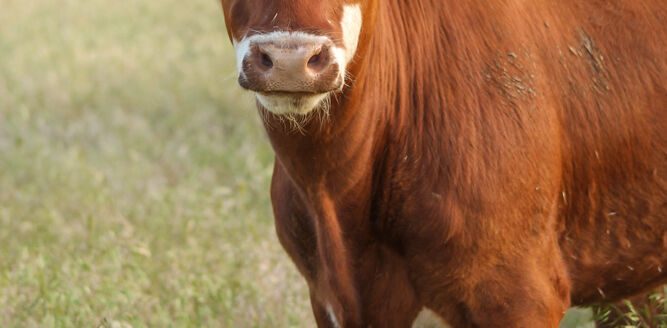About every five years the Beef Checkoff-funded National Beef Quality Audit delivers guides and measurements for cattle producers and other stakeholders to help determine how the quality of United States beef is performing. Suggestions from this research are aimed to help increase the value of beef products, improve quality, minimize economic loss and aid in advancements of producer education.
Recently the results from the 2022 NBQA were released to media, and indicated consumers are getting a high-quality product that’s more efficiently produced, all while the primary focus of the beef industry and across the supply chain is food safety.
Josh White, senior executive director of producer education and sustainability at National Cattlemen’s Beef Association, said this audit is necessary.
“The NBQA is an important tool for the industry to identify where improvements are being made and where there are opportunities to capture more value,” White said in a news release. “The good news is, overall, the beef industry is providing a quality product to consumers that they enjoy.”
Early NBQAs focused on the physical attributes of beef such as marbling, external fat, carcass weight and carcass blemishes. These cattle industry concerns have evolved to include food safety, sustainability, animal well-being and the growing disconnect between producers and consumers. As a result, over the past 30 years, NBQA researchers have made significant changes to the research, leading to an increasingly meaningful set of results.
Research panel
Research panelists discussed those findings in a May 16 call with media, and included Keith Belk, head of the Department of Animal Sciences and the Center for Meat Safety and Quality at Colorado State University; Jeff Savell, vice chancellor and dean, Agriculture and Life Sciences, University Distinguished Professor of Meat Science at Texas A&M University; and Morgan Pfeiffer, assistant professor, Oklahoma State University, Animal & Food Sciences.
Savell said the NBQA is a benchmark. Researchers want to be aware of what’s being produced, concerns that should be included, as well as the quality, value of products, carcasses, byproducts, and strategies to improve.
Belk said this time around they learned some things they might not have discovered otherwise as a consequence of the pandemic and how data had to be collected.
“The shifting between foodservice to retail as the pandemic was—that challenged the beef industry as everybody knows, but it also helped the industry become more efficient.” Adding traceability to that system is something that can be added. Belk said it’s something that should continue to be worked on.
Pfeiffer commended everyone in both sectors of the beef industry and everyone that’s involved.
“We’ve got to continue to put out data like this though,” she said. “Continue to encourage (producers) to get BQA trained and do things so they don’t have lost opportunities.”
Producer panel
A three-person panel discussed the producer aspect of the NBQA and included Trey Patterson of the Padlock Ranch, Brandi Karisch with Mississippi State University and Clay Mathis of the King Ranch Institute for Ranch Management.
At the ranch level, Patterson believes this audit is important to cattle producers because it gives a snapshot of where the industry is and gives an idea of the things that need to be focused on and improved upon.
Karisch said there are a couple of items in the data that stuck out to her.
“There were some really interesting findings that really made it emphasize that producers are listening, and we’ve made some really good progress,” she said.
Another thing producers can hang their hat on is improvement in quality grade. This audit saw the highest amount of Prime and Choice carcasses than any before it.
“That means producers are doing a good job of selecting those genetics that we know is going to produce that really high-quality beef,” she said. When asked why each believes so strongly in the BQA program, Patterson said he thinks this program is one that works.
“It’s based on science,” he said. “Like the results that we get out of the beef quality audits.”
BQA helps beef producers leverage their future and shape tomorrow.
“That’s what I love about it as a producer,” he said. “Because we’re not giving up operational freedom to participate in this.” Karisch appreciates the fact BQA is applicable to every size and level of producer in every segment of the industry.
“We can go from that cow-calf producer that just has 10 cows,” she said. “They can have that connection to our industry all the way up to a feed yard that’s 100,000 head on feed. And that same program spans the industry, and it really unites us.”
Karisch said the beef industry is continually growing and there’s always more producers can do to learn as well as striving for continuous improvement as an industry.
“Those practices that we can improve on that we know we’re going to continue to produce that safe, wholesome beef that’s going to go out and feed families.”
For more information about the 2022 National Beef Quality Audit, visit www.bqa.org.
Kylene Scott can be reached at 620-227-1804 or kscott@hpj.com.




